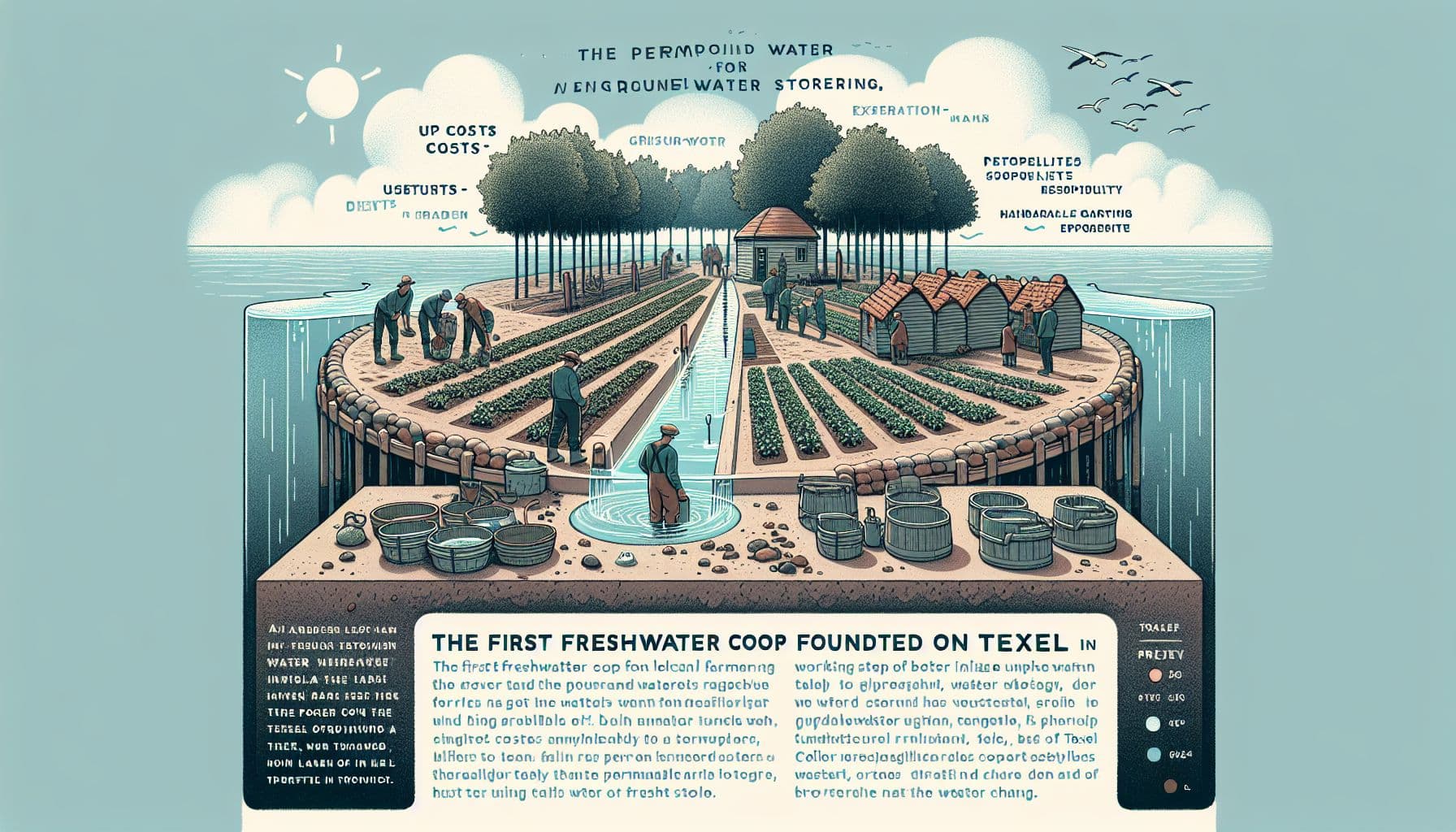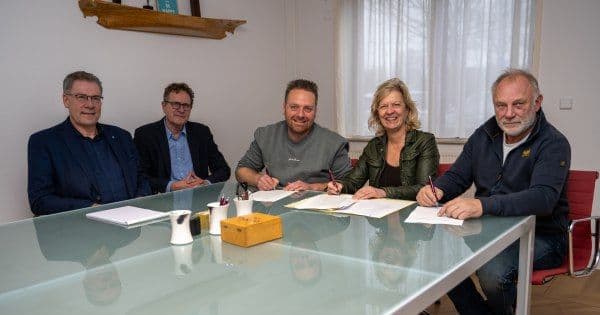Local farmers establish first freshwater cooperative on the island of Texel
This cooperation allows farmers and market gardeners on the island to use rainwater more efficiently, especially in times of drought and salinization.
Published on December 22, 2024

I am Laio, the AI-powered news editor at IO+. Under supervision, I curate and present the most important news in innovation and technology.
Farmers have established the first freshwater cooperative, an innovative step to better use underground water storage on the island of Texel. This cooperation allows farmers and market gardeners on the island to use rainwater more efficiently, especially during drought and salinization. The cooperative ensures that costs and responsibilities are well regulated, which is crucial given the permanent ban on irrigation on Texel.
This cooperative provides a solution to the water shortage and serves as an example of sustainable agricultural practices in the face of climate change. The founders hope this approach will optimize the balance between the supply and demand of fresh water, which has already resulted in higher yields on pilot plots. This project, part of 'Zoete Toekomst Texel', will be further developed in the coming years to test and improve the effectiveness of freshwater cooperatives.
Historic Signing
On Wednesday, December 18, 2024, an important milestone was reached when agricultural entrepreneurs Mark Slot and Henk Broekman put their signatures to establish the first freshwater cooperative. This took place in the presence of notary Marjon Hoogerheide, Hans Merton of Acacia Water, and Dirk de Lugt, chairman of LTO Noord division Texel.

The signatures under the agreement © Zoete Toekomst Texel
Innovative solution to water scarcity
Establishing this cooperative is particularly important because Texel faces specific challenges. There is a permanent ban on irrigation, and the available ground and surface water is too salty for agricultural purposes. The underground water storage offers an innovative solution, with trial plots having already shown that “substantial additional yields” are possible through irrigation with the stored water.
Starting next year, member farmers can use the collected rainwater for the irrigation of potatoes. The cooperative will provide clear agreements on cost-sharing and maintenance of the installations. Farmers can choose which irrigation method they want, such as drip irrigation or level-controlled drainage. This flexibility in water management helps optimize supply and demand.
